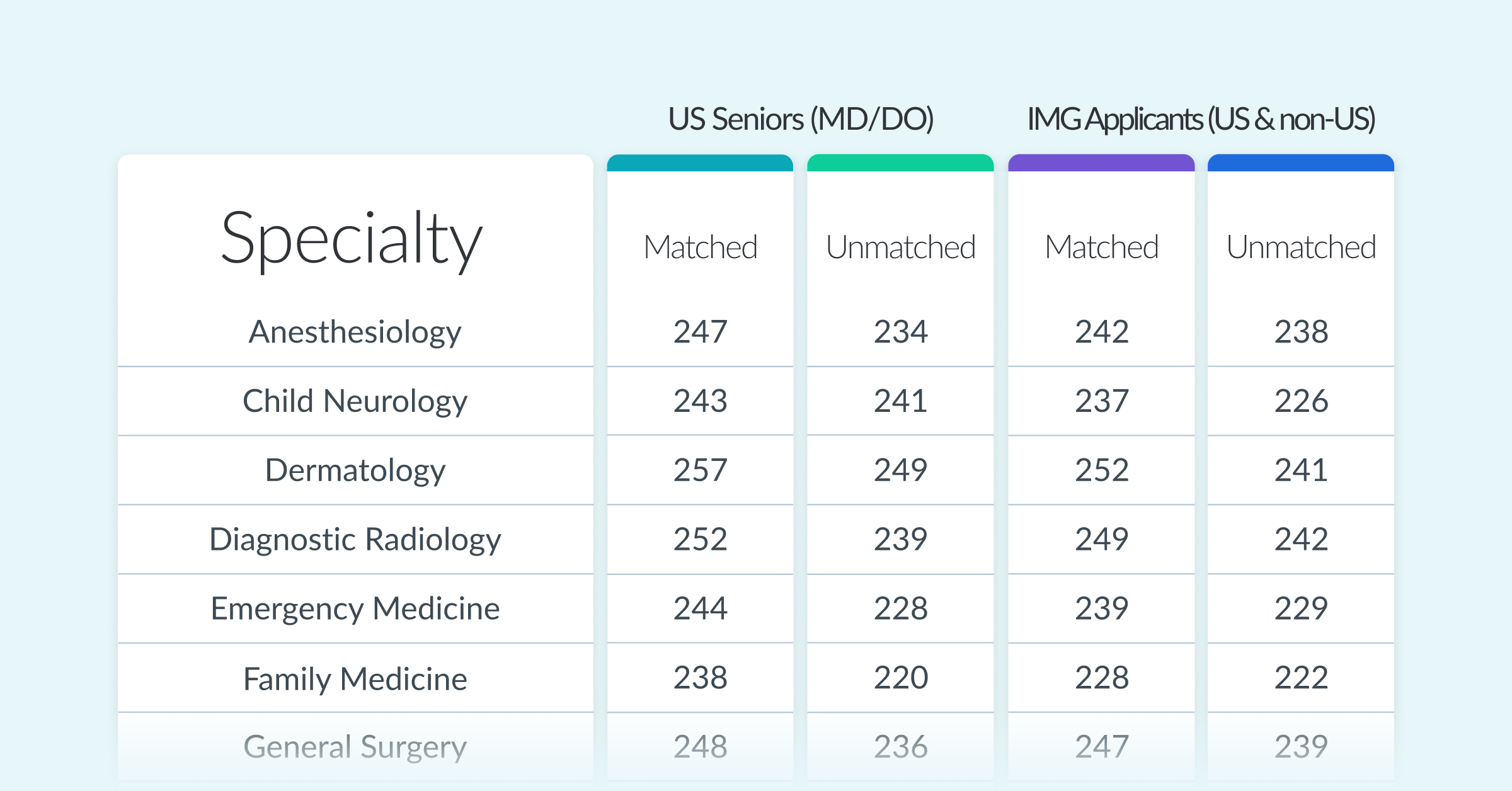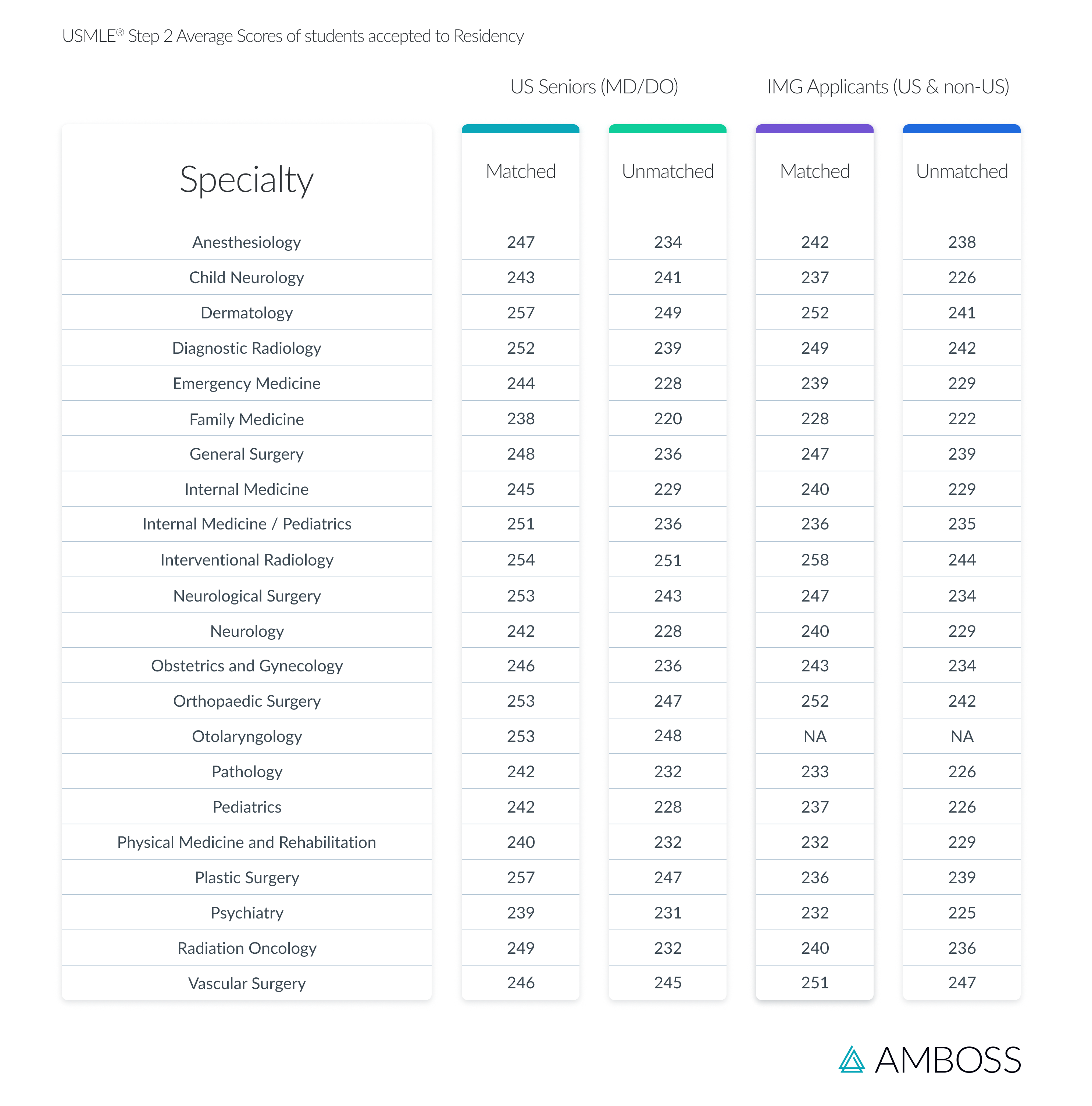Average 2022 USMLE® Step 2 Match Scores by Medical Specialty

Back in 2022, the USMLE® Step 1 exam became pass/fail. Ever since then, more attention has turned to the Step 2 exam, which continues to grade students with a 3-digit score. While there are many, many factors that go into a successful match, the Step 2 exam is taking on a new significance.
With this in mind, let’s take a look at the average 2022 USMLE Step 2 match scores by medical specialty. We’ve broken down the data from the National Residency Matching Program’s (NRMP) Charting Outcomes in the Match, 2022 reports into the following tables so you can quickly refer to any specialty. Data is available for US MD & DO students as well as IMGs.
The average USMLE Step 2 match scores by medical specialty

Studying for the Step 2 exam can be tricky as there is not always a huge amount of time to do it. Students are usually busy with clinical rotations, Shelf exams, and other clinical duties. That’s why we want to share some of the most important topics to study before the exam—namely ethics and interpersonal skills. Since the USMLE increased the number of ethics questions on the exam, you won’t regret brushing up on the following articles:
While Step 2 match scores are important, there are many other factors that contribute to your success. These include, but are not limited to, completing successful clinical rotations, impressing your attendings and getting positive evaluations from them, and providing your patients with excellent patient care. All this can be done with the support of the AMBOSS for clinicians. Check out our clinical content today and you’ll find fast, reliable answers to your medical questions.
Start your free trial today and get the ultimate companion for students and residents on the wards.
Chart data: Data is from the Charting Outcomes in the Match: Senior Students of U.S. MD Medical Schools, Charting Outcomes in the Match: Senior Students of U.S. DO Medical Schools report, and Charting Outcomes in the Match: International Medical Graduates. The NRMP has no affiliation with AMBOSS.
Only those who gave consent to use their information in the NRMP research are included in the matched and unmatched data.

